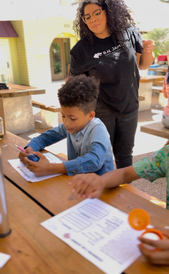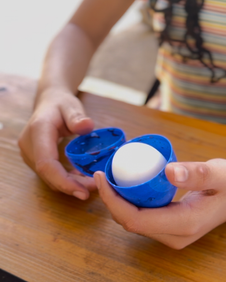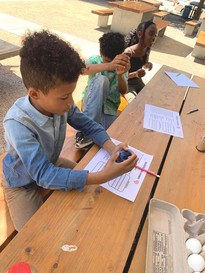Looking for a fun and educational activity to do with your kids now that Easter season is over? Don't let those leftover plastic eggs go to waste! We've got an idea for you. Repurpose those eggs into a creative activity that will keep your kids engaged and learning.

Our goal is to spark curiosity and creativity in the hearts of our young scientists. Just recently, Ms. Ashley cracked open a fantastic lesson on the role of cerebrospinal fluid (CSF) in the brain with an activity that had our students laughing and learning at the same time!
Before we dive in, let's take a quick dip into the importance of CSF. This clear, colorless liquid is the bodyguard for your brain and spinal cord, cushioning them against injury and providing essential nutrients. In short, it's the bouncer of the nervous system, and it takes its job seriously.
Now, onto the egg-citing part! Ms. Ashley designed an experiment that used Easter eggs, corn syrup, and real eggs to teach our students about this essential component of the human nervous system.
The children were given Easter eggs to represent makeshift skulls and real eggs as an analogy for their brains. Our little scientists then carried out two separate experiments: one without any "cerebral fluid," and another with corn syrup mimicking the extra cushioning provided by CSF between our skulls and brains.. The aim of this egg-speriment was to demonstrate how cerebrospinal fluid protects our brains from potential harm.
As you can imagine, things got a tad messy during this lively science lesson, but it was all in the name of science and discovery!
To share this fantastic experiment with everyone, we're offering a free download of the complete lesson plan and the experiment worksheet. Click the link below to get started on your own cerebrospinal fluid exploration with your kids or students today!
So this Easter, after the egg hunt is over, don't let those plastic eggs go to waste. Give them a second life and turn them into a fun and educational activity for your kids. Happy experimenting!











































































Comments